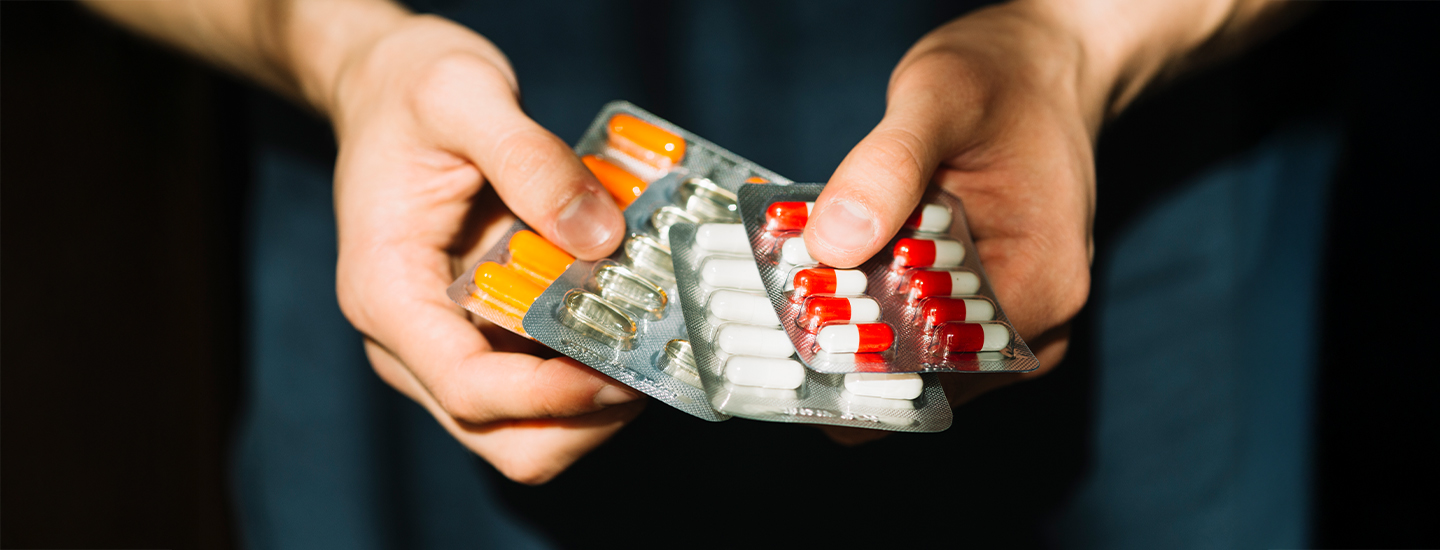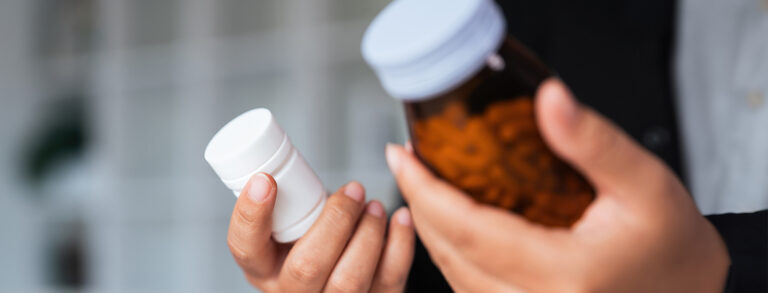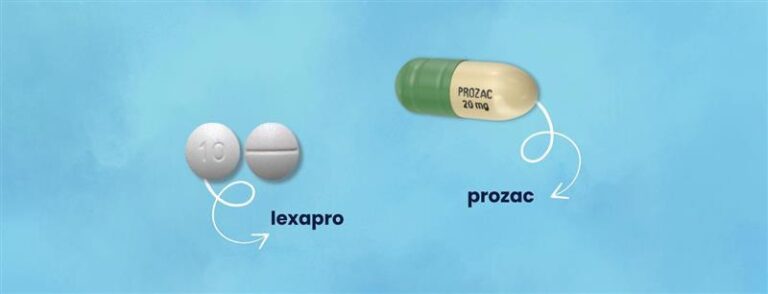The 10 Best OTC Anxiety Medications and Supplements
Finding Relief Without a Prescription Why More People Are Exploring Non-Prescription Options Anxiety disorders are incredibly common but often undertreated due to barriers such as stigma, medication side effects, and cost. As a result, some individuals seek relief through over-the-counter (OTC) options like dietary supplements and herbal remedies. These are often seen as more accessible… Read more

Reviewed by Ben Ebaugh, DNP
Staff Provider at PsychPlus
July 18, 2025

Finding Relief Without a Prescription
Why More People Are Exploring Non-Prescription Options
Anxiety disorders are incredibly common but often undertreated due to barriers such as stigma, medication side effects, and cost. As a result, some individuals seek relief through over-the-counter (OTC) options like dietary supplements and herbal remedies. These are often seen as more accessible or natural. However, it’s critical to understand these are not replacements for clinically indicated treatments and are not approved by the FDA for treating anxiety. Most supplements have not undergone the rigorous testing required for prescription medications.
Seeking help from a certified psychiatrist or licensed mental health provider ensures established, evidence-based care for anxiety. Supplements should only be considered as supportive measures.
What “OTC Anxiety Medication” Really Means
While some may be marketed for relieving stress or promoting relaxation, there are no FDA-approved OTC medications specifically indicated for anxiety. The term is a misnomer often used colloquially to describe dietary supplements or herbal compounds that show some anxiolytic properties in limited studies. These products are regulated as foods, not drugs, which means they are not subject to the same efficacy and safety standards. This article reviews commonly used OTC supplements that have shown potential for anxiety relief in peer-reviewed studies—but should never replace medical advice or treatment.
Top 10 OTC Supplements with Potential Anxiolytic Benefits
1. Magnesium – Mood Regulation and Sleep Support
Magnesium influences neurotransmission and acts on the hypothalamic-pituitary-adrenal (HPA) axis to support mood stability. Studies show individuals with magnesium deficiency may experience heightened stress response and that supplementation can help mitigate mild to moderate anxiety symptoms, particularly in combination with other micronutrients [1].
2. L-Theanine – Calming Amino Acid with Cognitive Perks
L-Theanine promotes alpha brain wave activity, often associated with a relaxed but alert mental state. Found naturally in green tea, L-theanine has been shown to enhance dopamine and serotonin levels and improve working memory during stress. Clinical trials suggest L-theanine supplementation may reduce subjective stress and support executive function without causing sedation [2].
3. Omega-3 Fatty Acids – Brain and Mood Support
Omega-3s, especially EPA, have demonstrated benefits in reducing inflammation and improving neuronal membrane fluidity, which may influence mood regulation. Meta-analyses have linked omega-3 supplementation to reduced symptoms in individuals with clinical anxiety, although results vary based on dosage, formulation, and population [3].
4. Ashwagandha – Adaptogen for Cortisol Control
Ashwagandha (Withania somnifera) is an Ayurvedic herb known for its adaptogenic properties. Clinical trials show that high-concentration ashwagandha extract significantly reduces cortisol levels and self-reported stress and anxiety scores in healthy and stressed populations, likely by modulating the HPA axis [4].
5. Chamomile – Gentle Herbal Relief
Chamomile (Matricaria recutita) contains flavonoids that may bind to GABA receptors and exert mild sedative effects. In clinical trials, chamomile extract significantly reduced Generalized Anxiety Disorder (GAD) symptoms compared to a placebo, with an excellent safety profile. It is an attractive option for individuals who prefer plant-based remedies [5].
6. Valerian Root – Helps with Anxiety and Sleep
Valerian root (Valeriana officinalis) is most recognized for promoting sleep, but it may also have anxiolytic effects due to its modulation of GABA transmission. While evidence is mixed, some studies have found it helpful for sleep disturbances associated with anxiety, suggesting a dual benefit for sleep-anxiety cycles [6].
7. Melatonin – Eases Anxiety-Driven Insomnia
Melatonin is a hormone that helps regulate circadian rhythms. While not a direct anxiolytic, improved sleep from melatonin supplementation may reduce overall anxiety symptoms. Evidence supports its use particularly in anxiety-related insomnia and as a preoperative anxiolytic in some clinical contexts [7].
8. Passionflower – Aids Relaxation and Stress Management
Passionflower (Passiflora incarnata) may enhance GABA levels in the brain, promoting relaxation. One randomized controlled trial found that passionflower was as effective as oxazepam (a benzodiazepine) in reducing anxiety symptoms, with fewer reported side effects. It may be particularly suited for short-term use in situational anxiety [8].
9. Lavender – Aromatic Stress Reliever
Lavender oil, especially in oral preparations like Silexan, has been found effective for GAD. It is thought to influence serotonin and parasympathetic activity. A well-designed randomized controlled trial found Silexan comparable in efficacy to lorazepam but without sedation or risk of dependency, making it an attractive alternative for mild anxiety [9].
10. Kava – Potent but Comes with Caution
Kava (Piper methysticum) has demonstrated strong anxiolytic effects in multiple studies, likely through its impact on GABA and monoamine transmission. However, concerns over liver toxicity have led to regulatory scrutiny and restrictions in some countries. It may be effective short-term under medical supervision but is not recommended for long-term use without guidance [10].
What to Know Before Trying OTC Supplements
Side Effects, Medication Interactions, and Safety Concerns
Even natural supplements can cause side effects or interact with medications. For example, kava may damage the liver, valerian can cause drowsiness, and magnesium can cause gastrointestinal upset. Some herbs can affect blood clotting or alter drug metabolism. Always consult a healthcare provider before starting any supplement, particularly if you’re taking prescription medications.
How to Choose Quality Supplements and When to Talk to a Physician
Look for third-party testing and certifications (e.g., USP, NSF). Reputable brands disclose sourcing, dosages, and manufacturing practices. Importantly, if anxiety symptoms persist, worsen, or interfere with your quality of life, consult a licensed mental health professional. Supplements may help, but they are not cures and are best viewed as complementary supports.
It’s also vital to avoid self-diagnosing. Anxiety may be a symptom of broader conditions like PTSD, depression, or other medical issues. A certified psychiatrist can provide a comprehensive assessment and guide evidence-based treatment.
When Supplements Aren’t Enough: Traditional Anxiety Treatments
Medication and Therapy: SSRIs, CBT, and More
Clinically proven treatments for anxiety include SSRIs (e.g., sertraline, fluoxetine), SNRIs, and therapeutic interventions like cognitive behavioral therapy (CBT) and exposure therapy. These options have been validated in hundreds of trials and remain first-line treatments for moderate to severe anxiety.
CTA: Book a Session with PsychPlus Today and Take the First Step Toward Relief
You don’t have to manage anxiety alone. If symptoms are impacting your well-being, reach out. Schedule an appointment with PsychPlus today to access board-certified psychiatrists and licensed therapists to support your needs.
FAQs
Q1: Are OTC anxiety supplements safe?
Some may be safe when used as directed, but they can interact with medications or have side effects. Always consult a healthcare provider.
Q2: How long until I feel results from supplements?
Some people may notice effects within days, others in weeks. Consistency and proper dosage are key.
Q3: Can I use OTC options with prescription meds?
Potentially, but only under the supervision of a healthcare provider due to interaction risks.
References
- Boyle, N. B., et al. (2017). The effects of magnesium supplementation on subjective anxiety and stress—a systematic review. Nutrients, 9(5), 429. https://www.mdpi.com/2072-6643/9/5/429
- Hidese, S., et al. (2019). Effects of L-theanine administration on stress-related symptoms and cognitive functions in healthy adults: A randomized controlled trial. Nutrients, 11(10), 2362. https://www.mdpi.com/2072-6643/11/10/2362
- Su, K. P., et al. (2015). Omega-3 polyunsaturated fatty acids in prevention of mood and anxiety disorders. Clinical Psychopharmacology and Neuroscience, 13(2), 129–137. https://pubmed.ncbi.nlm.nih.gov/26243838/
- Lopresti, A. L., et al. (2019). An investigation into the stress-relieving and pharmacological actions of an ashwagandha (Withania somnifera) extract: A randomized, double-blind, placebo-controlled study. Medicine, 98(37), e17186. https://pubmed.ncbi.nlm.nih.gov/31517876/
- Amsterdam, J. D., et al. (2009). A randomized, double-blind, placebo-controlled trial of oral Matricaria recutita (chamomile) extract therapy for generalized anxiety disorder. Journal of Clinical Psychopharmacology, 29(4), 378–382. https://pubmed.ncbi.nlm.nih.gov/19593179/
- Bent, S., et al. (2006). Valerian for sleep: A systematic review and meta-analysis. The American Journal of Medicine, 119(12), 1005–1012. https://pubmed.ncbi.nlm.nih.gov/17145239/
- Brzezinski, A., et al. (2005). Effects of exogenous melatonin on sleep: A meta-analysis. Sleep Medicine Reviews, 9(1), 41–50. https://pubmed.ncbi.nlm.nih.gov/15649737/
- Akhondzadeh, S., et al. (2001). Passionflower in the treatment of generalized anxiety: A pilot double-blind randomized controlled trial with oxazepam. Journal of Clinical Pharmacy and Therapeutics, 26(5), 363–367. https://pubmed.ncbi.nlm.nih.gov/11679026/
- Woelk, H., & Schläfke, S. (2010). A multi-center, double-blind, randomized study of the lavender oil preparation Silexan in comparison to lorazepam for generalized anxiety disorder. Phytomedicine, 17(2), 94–99. https://pubmed.ncbi.nlm.nih.gov/19962288/
- Sarris, J., et al. (2011). Kava: A comprehensive review of efficacy, safety, and psychopharmacology. Australian & New Zealand Journal of Psychiatry, 45(1), 27–35. https://pubmed.ncbi.nlm.nih.gov/21073405/
Find a mental health care provider near you
Learn about the conditions we treat


